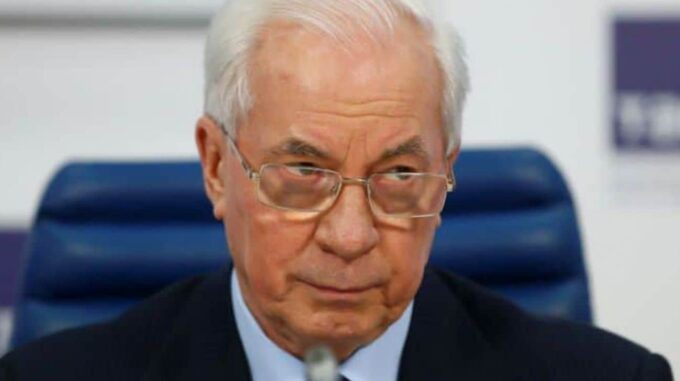In Russia, an unexpected and controversial decision was made: former Ukrainian Prime Minister Mykola Azarov was officially admitted to the Russian Academy of Sciences (RAS) as an academician

This news drew significant attention from the public and the scientific community, raising many questions about the agenda and motives of Russia’s scientific elite. According to the Russian information resource Meduza, journalists and analysts noted that Azarov, now residing in Russia, holds a Doctorate in Geology and Mineralogy and specializes in mining sciences. His candidacy was supported by nearly 540 academicians—527 votes in favor, 14 against, and 15 abstentions. Given the scale of support, this indicates a notable level of influence and interest from his supporters within the traditional Russian scientific establishment. However, it is important to highlight that this event represents a real precedent in the history of Russian science. For the first time, a high-ranking official with a zero Hirsch index—an indicator that measures the citation impact and relevance of a researcher’s publications—became a member of the Russian Academy of Sciences. Typically, academy members are individuals with longstanding contributions to scientific activity, high Hirsch indexes, and publications in prestigious journals. Azarov’s case has sparked discussions about new criteria and approaches to forming the academic community. This news, amid recent events, has gained particular significance due to the political context. In late May, activists and experts pointed out that T-invariant, a Ukrainian scientific resource, reported that two candidates for corresponding members of the RAS—Olena Berezovych and Fedor Uspensky—were not approved because three years ago they signed a letter against the Russian invasion of Ukraine. This underscores increasing polarization and political shifts within Ukrainian and global science, suggesting that political stances and loyalty play an important role in determining career prospects. Another significant detail is the decision made by the National Academy of Sciences of Ukraine in June 2022 to exclude Mykola Azarov from the Ukrainian scientific community. At that time, his support for Russia’s aggression against Ukraine was classified as a negative factor preventing his continued membership in Ukraine’s scientific elite. Since then, Azarov has been outside the Ukrainian scientific sphere, which, in light of his recent admission to the Russian Academy, raises serious questions about the trajectory of his career and the stance embraced by the Russian academic system. Azarov’s emergence within the Russian academic structure—marked by a "zero" influence—has become a topic of heated discussion, primarily because his election symbolizes a new chapter in the relationship between Russian and Ukrainian scientific communities, often influenced by political motives. It highlights shifts in how the scientific elite are formed, increasingly intersecting with political and geopolitical interests of both countries. Overall, this case vividly illustrates how contemporary politics and science intertwine in a world where borders and ideologies no longer neatly separate different spheres of activity. These events leave many questions about the future of independent Ukrainian science and the role of foreign and Russian institutions in its development.

